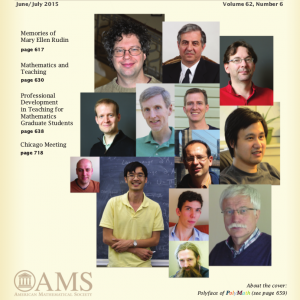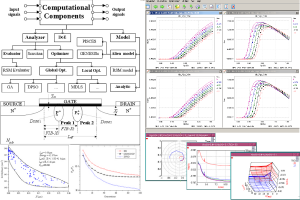Particle Swarm Optimization (PSO) Software
Category : Software
Particle swarm optimization (PSO) is a population-based stochastic optimization technique inspired by swarm intelligence. The underlying motivation for the development of PSO algorithm was social behavior of animals such as bird flocking, fish schooling, and swarm theory. The fundamental to the development of PSO is a hypothesis that social sharing of information among peers offers an evolutionary advantage. One of reasons that PSO is attractive is that there are very few parameters to be adjusted.
The following PSO software are provided in the Code Library:
- DPSO (Dissipative Particle Swarm Optimization) [Project Portal & Code | Doc]: It is a PSO variant that was developed according to the self-organization of dissipative structure. The negative entropy is introduced to construct an opening dissipative system that is far-from-equilibrium so as to driving the irreversible evolution process towards a better fitness.
- DEPSO (or called DEPS) [Project Portal & Code | Doc]: It is an algorithm that hybridizes the advantages of both PSO and Differential Evolution (DE) for solving (constrained) numerical optimization problem (NOP).
PSO has been incorporated into the cooperative group optimization (CGO) system for realizing various competitive hybrid algorithms.

 Model Quality Assurance (MQA) is automated and customizable circuit model library validation software for advanced technologies. Unlike the traditional manual scripting methods, MQA enables you to check your circuit model, compare models and generate QA reports in a complete and efficient way. MQA has become the industry standard for circuit model acceptance and signoff and is widely adopted by leading integrated device manufacturers (IDMs), foundries and design houses.
Model Quality Assurance (MQA) is automated and customizable circuit model library validation software for advanced technologies. Unlike the traditional manual scripting methods, MQA enables you to check your circuit model, compare models and generate QA reports in a complete and efficient way. MQA has become the industry standard for circuit model acceptance and signoff and is widely adopted by leading integrated device manufacturers (IDMs), foundries and design houses. This problem is to solve the Magic Square Problem (constrained and unconstrained versions), a combinatorial optimization problem, using
This problem is to solve the Magic Square Problem (constrained and unconstrained versions), a combinatorial optimization problem, using